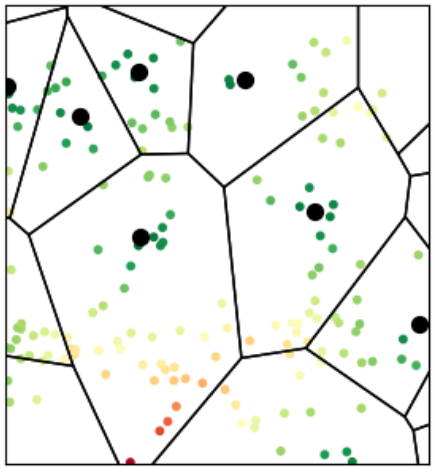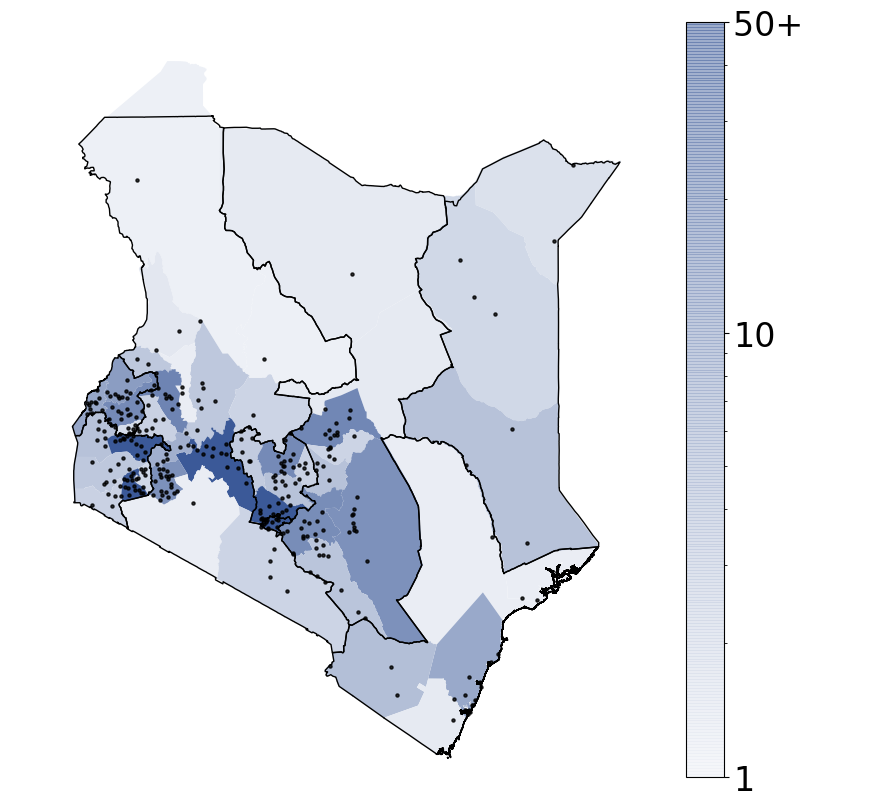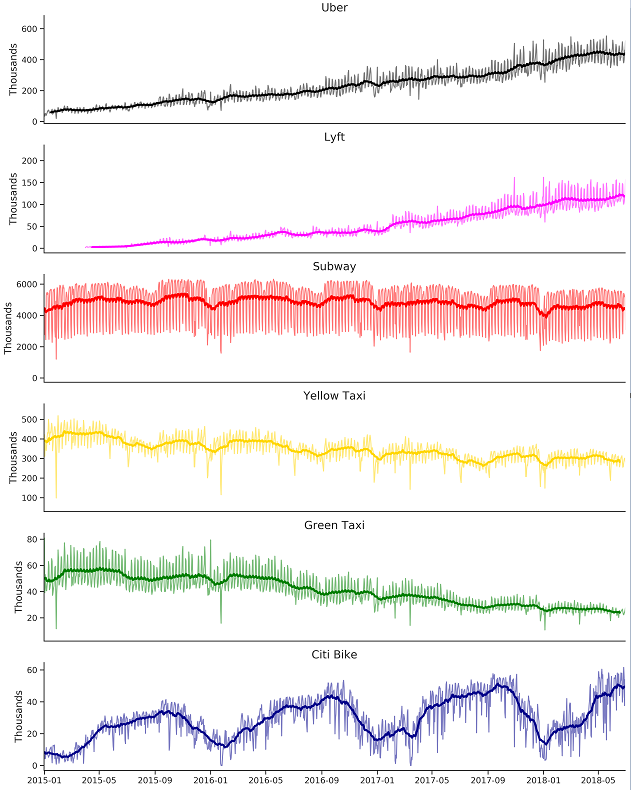Predicting forced displacement: a modelling framework with Miguel Luengo-Oroz
 Publication Modeling cards
Publication Modeling cards
Predicting forced displacement is an important undertaking of many humanitarian aid agencies, which must anticipate flows in advance in order to provide vulnerable refugees and Internally Displaced Persons (IDPs) with shelter, food, and medical care. While there is a growing interest in using machine learning to better anticipate future arrivals, there is little standardized knowledge on how to predict refugee and IDP flows in practice. In this work, we attempt to facilitate a more comprehensive understanding of this emerging field of research by providing a systematic model-agnostic framework, adapted to the use of big data sources, for structuring the prediction problem. We also draw on our own experience building models to predict forced displacement from Somalia and Venezuela.
Shaping user behavior in digital and physical space: The case of E-scooter parking with Arun Sundararajan
 Working paper available on request.
Working paper available on request.
What factors determine the choices of people when using a new product for which no clear norms of behavior exist? What is the relative effectiveness of digitally-enabled and physical-world cues in shaping desired behaviors? We examine these questions in the context of e-scooter riders, studying what influences these riders to park where city officials and scooter operators want them to. We combine usage data from a leading e-scooter platform in two key urban markets – Paris and San Diego – with open data on each city’s urban design and parking amenities. Our findings can help guide the use of integrated digital and physical cues to moderate physical-world behavior, and provide new managerial insights for platforms and governments which aim to minimize the externalities generated by users in complex urban environments.
Mapping the landscape of Artificial Intelligence applications against COVID-19 with Joseph Aylett-Bullock, Sasha Luccioni, Cynthia Sin Nga Lam, and Miguel Luengo-Oroz
 Review paper Global Cooperation Inequality
Review paper Global Cooperation Inequality
We present an overview of recent studies using Machine Learning and, more broadly, Artificial Intelligence, to tackle many aspects of the COVID-19 crisis. We have identified applications that address challenges posed by COVID-19 at different scales, including: molecular, by identifying new or existing drugs for treatment; clinical, by supporting diagnosis and evaluating prognosis based on medical imaging and non-invasive measures; and societal, by tracking both the epidemic and the accompanying infodemic using multiple data sources. We also review datasets, tools, and resources needed to facilitate Artificial Intelligence research, and discuss strategic considerations related to the operational implementation of multidisciplinary partnerships and open science. We highlight the need for international cooperation to maximize the potential of AI in this and future pandemics.
Social Media Markets for Survey Research in Comparative Contexts: Facebook Users in Kenya with Parrish Bergquist, Leah R. Rosenzweig, Francesco Rampazzo, and Matto Mildenberger
 Working paper CODE conference abstract PolMeth poster Kenya pre-analysis plan
Working paper CODE conference abstract PolMeth poster Kenya pre-analysis plan As internet and cell phone use spread, a growing number of citizens in developing countries are getting online and using social media. Can social media platforms provide a cheaper, faster, and reliable mechanism to reach populations that are currently expensive to survey in comparative contexts? How representative of the national population are social media users? We examine these questions in the case of Facebook users in Kenya and Mexico. Using quota-based sampling strategies designed to recruit nationally representative survey samples, we examine how closely the demographics, social and political attitudes, and behaviors of Kenyans and Mexicans recruited on Facebook match those of the general population as measured by the national census and the Afro/LatinoBarometer opinion surveys.
Ridesharing and the Use of Public Transportation with Panos Ipeirotis and Arun Sundararajan
 Working paper ICIS 2019 paper ICIS 2016 paper
Working paper ICIS 2019 paper ICIS 2016 paper
We investigate the relationship between on-demand ridesharing via platforms like Uber and Lyft and the use of public transit systems. Our study uses trip count data on ridesharing, taxi, shared bike, and subway usage in New York City. Exploiting a series of exogenous shocks to the system — the closing of subway stations — to isolate substitution effects, we find that the average shock is associated with a 2.8 - 3.3% increase in the use of ridesharing. This suggests that on-demand ridesharing acts as infrastructure that helps smooth unexpected transportation supply and demand surges. We hope to lay a data-driven foundation to better understand how the sharing economy substitutes and complements existing and future capital-intensive transit systems.
Data Fusion to Describe and Quantify Search and Rescue Operations in the Mediterranean Sea with Jeremy Boy and Miguel Luengo-Oroz
The Mediterranean Sea is the stage of one of the biggest humanitarian crises to affect Europe. Since 2014, thousands of migrants and refugees have died or gone missing in dangerous attempts to cross into the continent. However, there is relatively little structured information available on how they attempt the crossing. Such information could be used to better target maritime rescue efforts or to anticipate smuggling patterns, which could potentially save lives. We define a quantified rescue framework for fusing different data sources around individual rescue operations, and we explore the potential of machine learning to perform automated rescue detection based on vessel trajectory information.